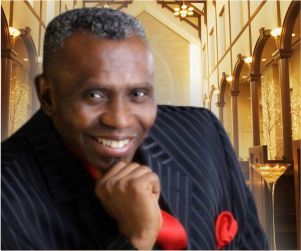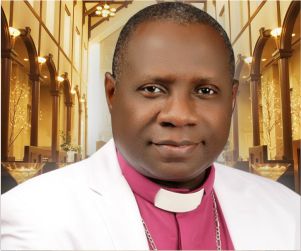8:00 - 9:00
Opening Hour Mon - Fri

On 27th August 1976 the (then) Federal Military Government, under Gen. Olusegun Obasanjo invited several Church Leaders of diverse denominations to Dodan Barracks, Lagos. The Governments sole purpose was to hold a discussion with the church Leaders, on the National pledge and the salutation of the National flag, which the Government intended to introduce into the Nation's Primary and Secondary Schools. The Church Leaders did not object to the introduction of the two items provided and on the condition that reading and reciting the National Pledge and saluting the National Flag would be preceded by the usual Morning Devotions, during which the Staff and the Students of each school worship their Creator and offer Praises and Prayers to Him.
Immediately after the meeting the Church Leaders spontaneously decided to go to a place, not too far from Dodan Barraks where they could hold another meeting. The Catholic Secretariat opposite the race course bus stop was unanimously chosen.
At the meeting, the Church Leaders arrived at a monumental decision that they should form an organization which would provide a forum where they could regularly meet together and take joint actions on vital matters, especially on issues which affect the Christian Faith and the welfare of the generality of Nigerians. That was the origin and the beginning of the Christian Association of Nigeria (CAN).
Those Church Leaders, who met at Dodan Barracks and later at the Catholic Secretariat on the historic August day, were right in their conviction that the Omnipotent God Himself through the Holy Spirit gave them a special Ecumenical Assignment. It was this conviction which prompted them to select out of the several names suggested for their coming together the name Christian Association of Nigeria (CAN). They strongly felt that with the help of the Holy Spirit, the Church in Nigeria can and will achieve unprecedented feats, to Christ.
That mustard seed planted on that eventful day has now grown to cover all the nooks and crannies of Nigeria with the Head Office at the National Christian Centre Abuja.
CAN was registered under the perpetual succession Act Cap 98 of Federal Republic of Nigeria (now Corporate Affairs Commission CAC) in Lagos on 19 December 1986 with Rev. Fr. Anthony Okogie, Pastor J.G. Sakpo, Charles Williams, Rev. Mgr. John Ogbonna and Clifford Mobolaji Smith as the trustees.
The first constitution was signed on 20th April 1977 the founding fathers with:

1976 - 1986 (csn)

NOV 1988 - NOV 1995 (csn)

NOV 1995 - NOV 2003 (METHODIST/CCN)

NOV 2003 - JUNE 2007 (ANGLICAN/CCN)

JUNE 2007 - JULY 2010 (CSN)

JULY 2010 - JULY 2016 (CPFN/PFN)

July 2016 - July 2022 (BAPTIST/CCN)

CAN PRESIDENT OAIC

Catholic (CSN): represented by
* His Eminence Cardinal Ekandem (late) who was the first President of CAN 1976 – 1986
* His Grace Archbishop Francis Arinze
* His Grace Cardinal Anthony Okogie – second President 1988 – 1995
*Rt. Rev. John A. Ogbonna
Christian Council of Nigeria (CCN): represented by:
* Rt. Rev. Festus O. Segun
* Rt. Rev. Rogers O. Uwadi
* Rev. Dr. Joseph A. Adegbite – first Gen. Secretary CAN 1976 – 1988
* Mr. Charles O. William – Second Gen. Sec. CAN 1988 – 2002
Others were represented by
* Pastor I. C. Sakpo (Apostolic Church)
* Rev. E.A Atilade (Gospel Baptist Church)
The 3rd president was Prelate S. Mbang – 1994 – 2003
The 4th President was Primate J.P Akinola – 2003 – 2007
CAN is an Association of Christian Churches with distinct identities,
recognizable Church structures and system of worship of one God in the
Trinity of the Father, Son and Holy Spirit. The Association makes Christ the
centre of its works and shall promote the glory of God, by encouraging the
growth and unity of the Churches and helping them to lead the nation and her
people to partake of Christ Salvation and all its fruits. The motto is “that they
all may be one” – John 17: 21.
MISSION:
The Mission of the Association is to meet regularly and take joint action on vital
matters, especially on those issues which affect the Christian Faith and the
welfare of the generality of Nigerians.